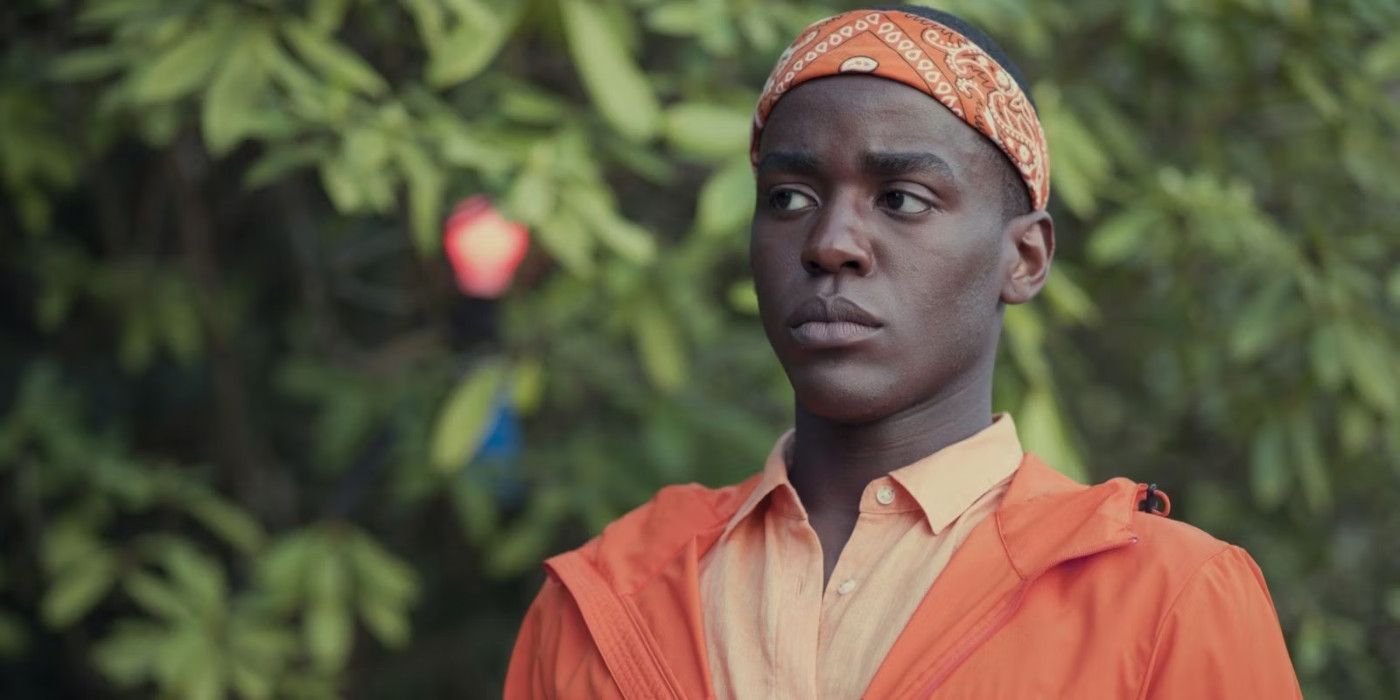The long-awaited final season of Sex Education has arrived at Netflix, marking the end of the misadventures of these sex-addled teens navigating between typical challenges and trying to form their own identities. The fourth-season finale neatly wraps up these storylines by providing fitting endings for all the characters. In the build-up to this, the series also assigns Ncuti Gatwa’s character, Eric, a new role that is particularly relevant in discussions surrounding LGBT+ identity and religion.Sex Education originally took place at Moordale Secondary School, where Otis (Asa Butterfield), Eric, and Maeve (Emma Mackey) set up an underground sex clinic to offer free advice on sexual matters to their fellow students. Otis relied on the knowledge he acquired from his mother, Jean (Gillian Anderson), who worked as a sex therapist. However, their business became so successful that it led to their school’s closure, prompting Otis and Eric to enroll in the much more progressive Cavendish College. At the same time, Maeve was accepted into a prestigious writing program at Wallace University in America. Consequently, the fourth season of Sex Education commenced with the core group being separated. This allowed the series to explore these characters more as individuals trying to find their place in a rapidly changing world. It utilized its new setting to continue its progressive approach to sexual topics while embarking on an incredibly relevant journey with Eric by breaking barriers of accessibility within religion concerning gender and sexual identity.Throughout most of this season, Eric grapples with accepting his identity in relation to his relationship with God. From the moment that audiences first met Eric, he was positioned as a bold and confident young gay man. This portrayal sharply contrasts with his depiction in Season 4. Here, Eric’s confidence seems to wane in the face of his religion, and he appears apprehensive about attending his church’s services. Another topic that arises in this context is Eric’s baptism. In most episodes, Eric does not seem interested in getting baptized because he feels he needs to hide a part of himself from God. While this unfolds, Eric encounters the same black woman around town; she first appeared in Season 4, Episode 4, living on the streets as a homeless person, asking for food. Earlier in this episode, his mother asked him for help at the soup kitchen run by the church. While Eric initially refused, he inadvertently found himself there when this individual asked him for directions to the soup kitchen.RELATED: Sex Education Creator Shares a Devastating Update About the Show’s Favorite Couple
The long-awaited final season of Sex Education has arrived at Netflix, marking the end of the misadventures of these sex-addled teens navigating between typical challenges and trying to form their own identities. The fourth-season finale neatly wraps up these storylines by providing fitting endings for all the characters. In the build-up to this, the series also assigns Ncuti Gatwa’s character, Eric, a new role that is particularly relevant in discussions surrounding LGBT+ identity and religion.
Sex Education originally took place at Moordale Secondary School, where Otis (Asa Butterfield), Eric, and Maeve (Emma Mackey) set up an underground sex clinic to offer free advice on sexual matters to their fellow students. Otis relied on the knowledge he acquired from his mother, Jean (Gillian Anderson), who worked as a sex therapist. However, their business became so successful that it led to their school’s closure, prompting Otis and Eric to enroll in the much more progressive Cavendish College. At the same time, Maeve was accepted into a prestigious writing program at Wallace University in America. Consequently, the fourth season of Sex Education commenced with the core group being separated. This allowed the series to explore these characters more as individuals trying to find their place in a rapidly changing world. It utilized its new setting to continue its progressive approach to sexual topics while embarking on an incredibly relevant journey with Eric by breaking barriers of accessibility within religion concerning gender and sexual identity.
Throughout most of this season, Eric grapples with accepting his identity in relation to his relationship with God. From the moment that audiences first met Eric, he was positioned as a bold and confident young gay man. This portrayal sharply contrasts with his depiction in Season 4. Here, Eric’s confidence seems to wane in the face of his religion, and he appears apprehensive about attending his church’s services. Another topic that arises in this context is Eric’s baptism. In most episodes, Eric does not seem interested in getting baptized because he feels he needs to hide a part of himself from God. While this unfolds, Eric encounters the same black woman around town; she first appeared in Season 4, Episode 4, living on the streets as a homeless person, asking for food. Earlier in this episode, his mother asked him for help at the soup kitchen run by the church. While Eric initially refused, he inadvertently found himself there when this individual asked him for directions to the soup kitchen.
#Sex #Education #Tackles #Complexities #LGBT #Identity #Religion
Note:- (Not all news on the site expresses the point of view of the site, but we transmit this news automatically and translate it through programmatic technology on the site and not from a human editor. The content is auto-generated from a syndicated feed.))



